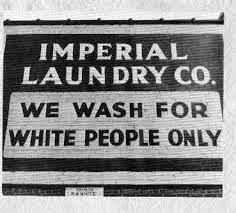
Some of my short takes on several pieces of news commentary in the past few days:
As do other influential centrists in the Catholic commentariat, E.J. Dionne supports the efforts of a group of religious folks to demand "robust religious exemptions" for discrimination against LGBT people in the Obama administration's executive order prohibiting such discrimination for federal contractors, though he notes that he's long believed that "anti-gay is both illiberal, and . . . un-Christian." Dionne urges the president to give religious folks demanding the right to discriminate a hearing, and then he notes,
Perhaps key religious groups will refuse to give ground. LGBT organizations may well see any accommodations as selling out fundamental principles. I get this.
Dionne's support for powerfully placed centrist people of faith demanding such "robust religious exemptions" for discrimination against LGBT people is consistent with his support, from the outset, of the U.S. Catholic bishops as they attacked the contraceptive mandate of the Affordable Care Act. Dionne is, in short, a centrist Catholic journalist, one who is intent on keeping the hard right involved in the conversations (and power-brokering) of the center, while disciplining and excluding from the conversation those to the left of center.
Note his formula in the passage above: there are "key religious groups." And then there are "LGBT organizations."
This formula contains no glimmer of awareness that "LGBT organizations" may well comprise "key religious groups." It betrays no awareness that gay human beings may not equal the opposite of religion, of faith, of Catholic identity, but may be included in all of those categories.
Dionne freely entertains the possibility of treating some of his own fellow Catholics, human beings who happen to be gay, as second-class citizens who may be subject to discrimination on "religious" grounds — as if those fellow human beings, those fellow Catholics, belong to some category of human beings who are self-evidently second-class, and against whom discrimination is justifiable because, after all, they're the opposite of religious.
They're the opposite of what it means to be Catholic.
But then there's Rev. Welton Gaddy, president of the Interfaith Alliance, who opposes the attempt of the powerful faith leaders Dionne is defending to demand "robust religious exemptions" to discriminate against LGBT human beings in federal programs. As Sarah Posner reports, Gaddy has responded to this demand by stating,
The tenet that religion should never be legitimated as a license to discriminate remains our core belief; that federal money must never be used to fund such discrimination must remain the bedrock of religious freedom in America.
The tenet that religion should never be legitimated as a license to discriminate remains our core belief: where Rev. Gaddy unambiguously establishes the disavowal of all license to discriminate as a bright and shining line of authentic religious faith, E.J. Dionne — who claims to deplore anti-gay discrimination — waffles. He waffles because his powerful friends among the Catholic commentariat, like Stephen Schneck, want to defend such discrimination in federal programs against the Obama administration.
He waffles because the U.S. Catholic bishops hotly defend their "right" to discriminate against LGBT human beings in federally contracted programs, and fear expensive lawsuits if such discrimination is outlawed. E.J. Dionne, who claims to deplore discrimination against LGBT human beings, waffles when real-life LGBT human beings are made susceptible to discrimination, because, in the final analysis, he's simply closer to, more at home with, more allied to fellow Catholics defending indefensible anti-gay discrimination than he's closer to any real-life gay human beings susceptible to being treated as a second-class citizen and second-class human beings.
Welton Gaddy clearly articulates and defends what must be a bright and shining line within a religious community, if it expects any of its moral teachings about human rights to be credible: The tenet that religion should never be legitimated as a license to discriminate remains our core belief: E.J. Dionne, one of our best and brightest American Catholic journalists, can't find it in himself to articulate and defend that same brighter and shining line.
Not when the lives of LGBT human beings are at stake.
When the history of this period of American Catholicism is written, the large appetite of the leaders of the American Catholic church in these years for discrimination against a targeted, demeaned sector of the human community, against those God happens to have made gay, will be viewed with bafflement and disdain — because the bright and shining line of never using religion as a license to discriminate will have prevailed in the culture at large. So that the demands of "people of faith" including the Catholic bishops of the U.S. and their supporters to be given a "right" to discriminate against gay people in the name of God will appear, down the road, as ugly and insupportable as the demands of "people of faith" to enjoy the religious "right" to discriminate against people on racial grounds now appear to most of us.
The willingness of the pastoral leaders of a major Christian denomination to place their church squarely on the side of discrimination in an historic battle for human rights will puzzle and repulse historians of the future. But even more baffling and repulsive to historians, I expect, will be the willingness of the best and brightest of the American Catholic commentariat to stand with the leaders of their church, and not the objects of those leaders' abuse, as they placed themselves squarely on the wrong side of history's moral arc.

